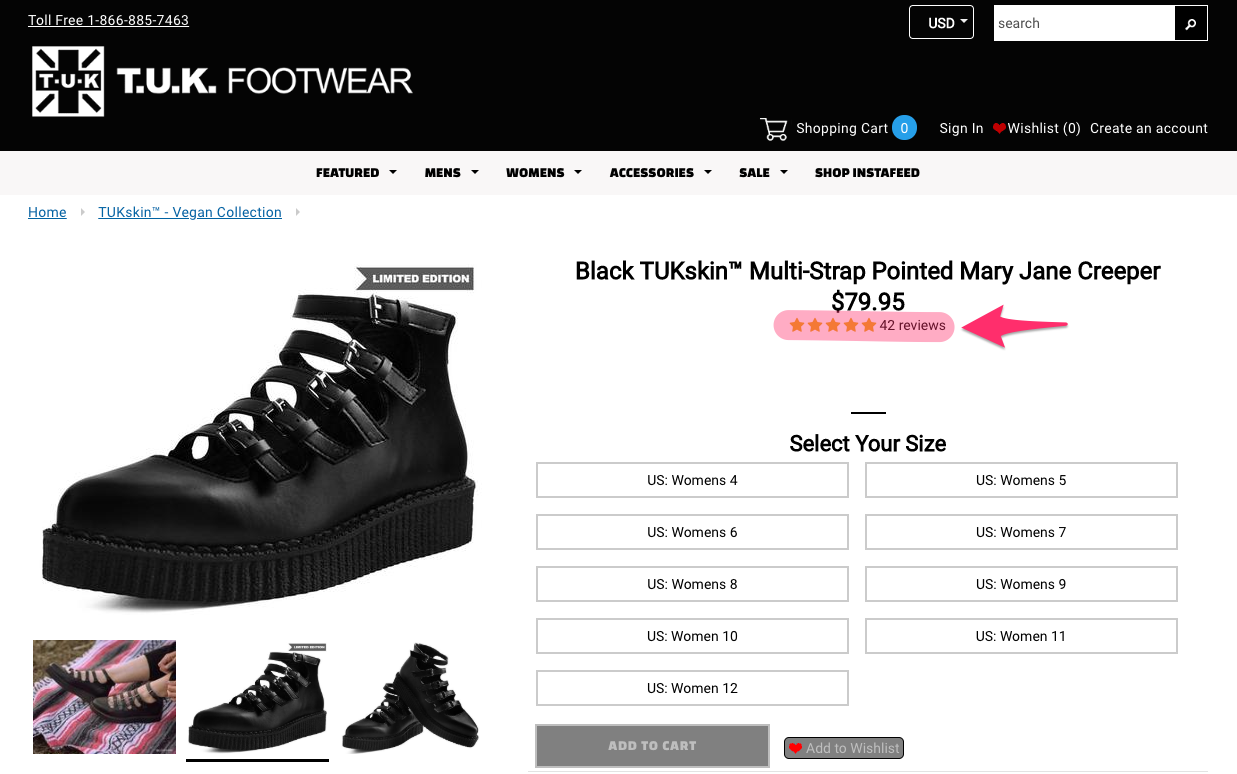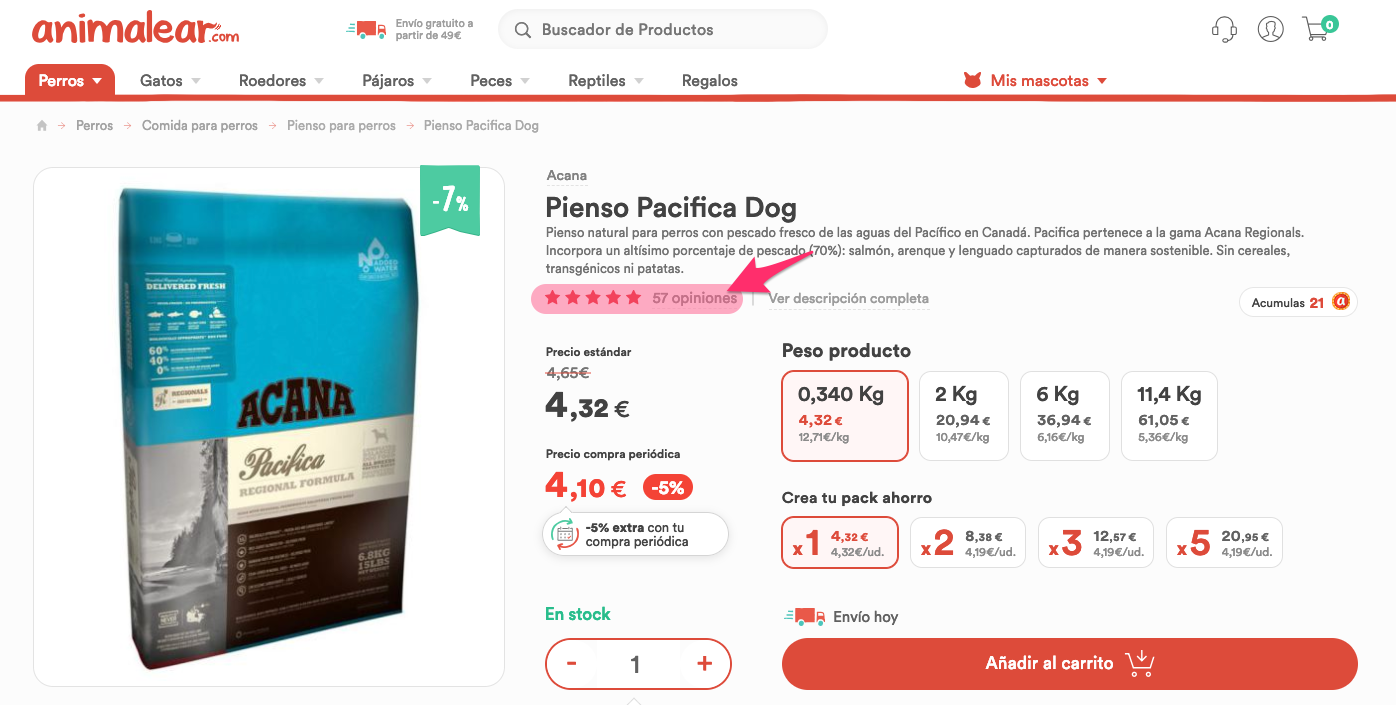Written by Anastasia Kurmakaeva
Index
It’s not news or a secret: search engines also look at what your customers say about you.
You have probably heard many times about the importance of customer reviews for the online reputation of a business. Certainly, when we think of the word “reputation”, our mind tends to turn to its most immediate meaning: the opinion that users who know us have of our business, service and/or product. However, we often do not consider the possibility that this is an aspect that search engines also value, and that their algorithm is capable of interpreting – based on certain factors – whether our customers enjoyed a satisfactory experience or were dissatisfied in some way with what was provided. In addition, we cannot overlook the fact that the fresh and up-to-date content of the reviews is also a huge plus. Therefore, having a good (and verified) online reputation not only contributes to improve the conversion rate, but also plays an important role in the organic visibility of your online store.
This factor, which is nothing more or less than a perfect demonstration of user-generated content in its pure state, will positively differentiate us from our competition if we use it to our advantage… and provide a quality product and service, of course!
Ways in which a user can review us that contribute to SEO
Comments on the web
We see it frequently in online stores, regardless of whether they are giants such as Amazon, Fnac or Ikea, or smaller, more specific e-commerces such as a shoe brand or a pet supply store.


Some e-commerce use external modules from companies specialized in collecting opinions and reviews, such as the example of the pet store Animalear or those we are going to see below in the section “Reviews on other networks and platforms”. Others manage it internally with a custom development or through plugins available in content management systems, such as the example of the TUK shoes store mentioned above.
These comments are an invaluable source of user-generated content, which populate our pages with interesting keywords without us having to do anything, especially long tail keywords. In other words, they do a good part of our work for us.
Testimonials
Testimonials are usually more controlled opinions that businesses solicit from individuals (or other companies) who have used their product or service. and, once obtained, they are published on the website in a small section designated for this purpose, on the home page itself; or even on a separate page specifically designed for this purpose. They may include the name or entity issuing the testimonial, or they may be anonymous. However, it is always more advisable for any testimony to be associated with a real and verifiable individual, as it gives us much more credibility.
Google Reviews
If we have a business with a physical establishment registered in Google My Business, and therefore, we appear in Google Maps, any user is free to leave a review on the quality of service and treatment received, with a score of 1 to 5 stars and a comment. If we have a good score, and receive a high volume of positive reviews, both Google and consumers will take this into account.
Reviews on other networks and platforms
In addition to Google My Business, there are other platforms that Google considers “trusted”, the so-called Google Licensed Content Partner, through which Internet users can leave their opinion about our business. Some of them are:
- Feefo
- Trust Pilot
- eKomi
- ETC.
Our presence in this type of portals helps us to get links in relevant sites, sites where users constantly use in their comments terms that are our own business target. All this helps us to gain relevance in the eyes of search engines, as they represent a natural source of link building in content closely related to us and give us a plus of legitimacy.
Social networks
Because SMO or social SEO is still SEO, to a certain extent. If we have a presence on Facebook, or other social platforms where consumers can leave their opinion about our business, gaining a good reputation at the social media level is also important, especially if we are regular users of Social Commerce as a sales and conversion channel. Ratings and activity in social profiles generate trust, transmit an image of a safe, reliable and consolidated brand that cares about the needs of its users and provides a fantastic treatment to the people who place their trust in the business.
Don’t forget that, in addition to improving your SEO, giving your users a voice or facilitating communication and interaction with you will always contribute positively to their experience and satisfaction with your company, and in the end, there is no better marketing strategy than word-of-mouth recommendations. (or of timeline a timeline ??).
What if I receive negative feedback?
Although we want to avoid negative opinions as much as possible, it is inevitable that at some point a problem or conflict may arise, and some of our clients may not see their expectations fulfilled. Here, the most important thing is to know how to handle it with elegance and politeness, to solve it in time and to reward the customer in some way for the bad experience if necessary. It is impossible to please everyone, and even when the problem does not depend entirely on us (and, for example, derives from other collaborators), it is sometimes important to know how to assume responsibility or our share of the blame for what happened. If our potential customers see that we are responsive, available to help and listen to them through thick and thin, they will take note of that too. This feedback also helps us to know where we can improve.
In addition, it is not very credible that a business with a certain track record has only positive opinions, and could even generate distrust among users. Google also knows that nobody is perfect, and of course, negative opinions are not going to worsen our positioning in any case. So don’t rush to remove negative reviews (in case the platform on which you received them allows it), and instead, try to resolve the conflict publicly.
Rich snippets in SEO and vendor score extensions in SEM
Finally, it is worth mentioning the review data markup that some websites implement for Google to show an average score of the different products offered or the service in general in their rich snippets, among others. It is what users see in Google search results when they make a query.
Google provides very extensive documentation for developers on how this aggregateRating data markup should be implemented.
Rich snippet scores, in addition to helping to highlight our results above others, are perfect for boosting the confidence of Internet users and potential customers in our website. But in order to benefit from this advantage, we have to have a correctly configured feedback module on our website, have the right data markup implemented and, not least, have users contribute with their reviews about our products or services.
For paid ads, Google Ads has a seller ratings extension, which shows an overall user rating of a website, and this is usually only shown for those merchants that achieve an average of 3.5 stars or higher.
Here you have the official Google Ads documentation on how seller score extensions work, when they appear, and what assumptions you have to meet to qualify for them to appear in your ads.
As you can see, customer reviews contribute to improve our website in many ways:
- They boost confidence in our business.
- They contribute to our positioning in search engines, organic and paid.
- They allow us to stand out in search results.
- Improve our online reputation.
- They give a voice to the users who visit us.






